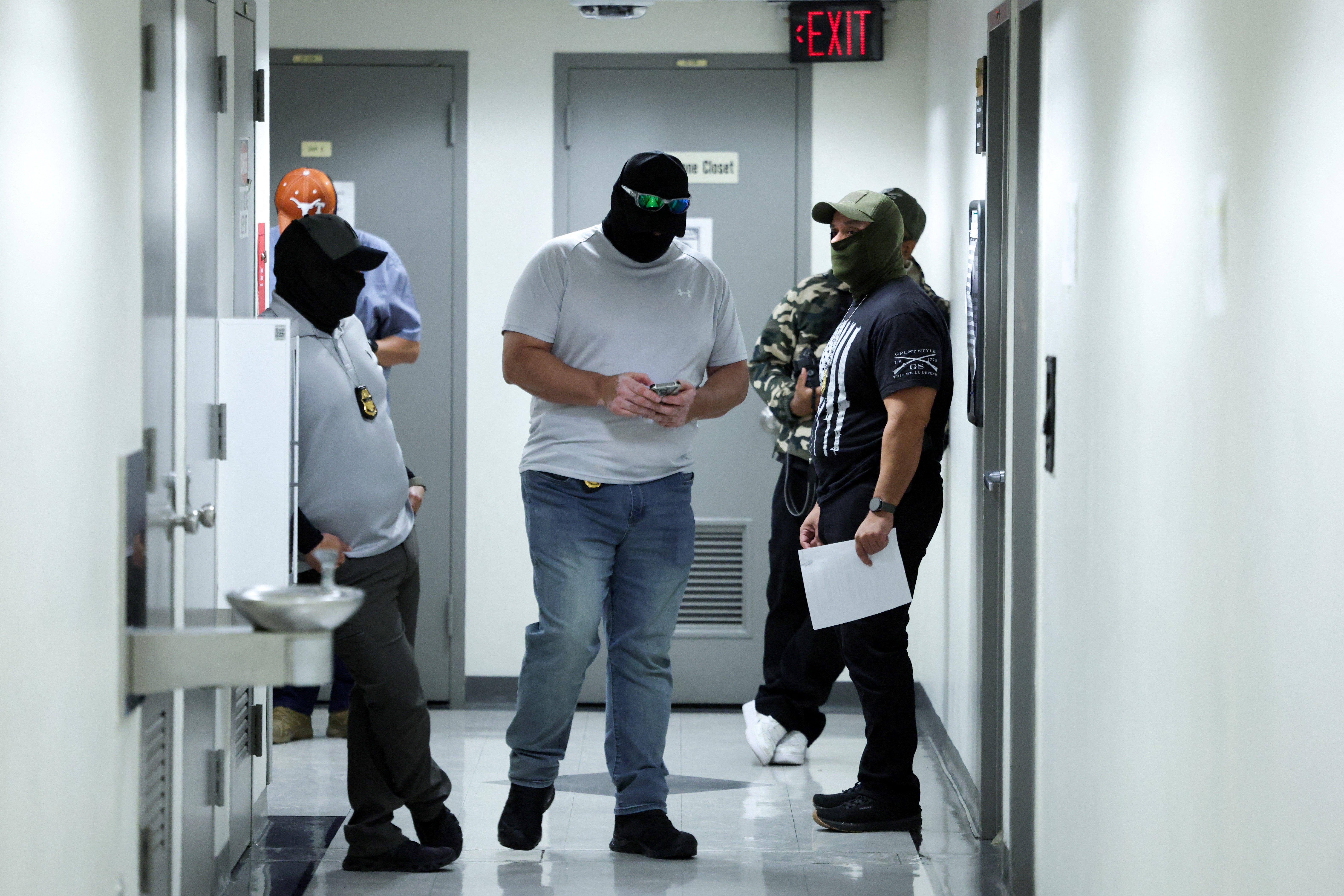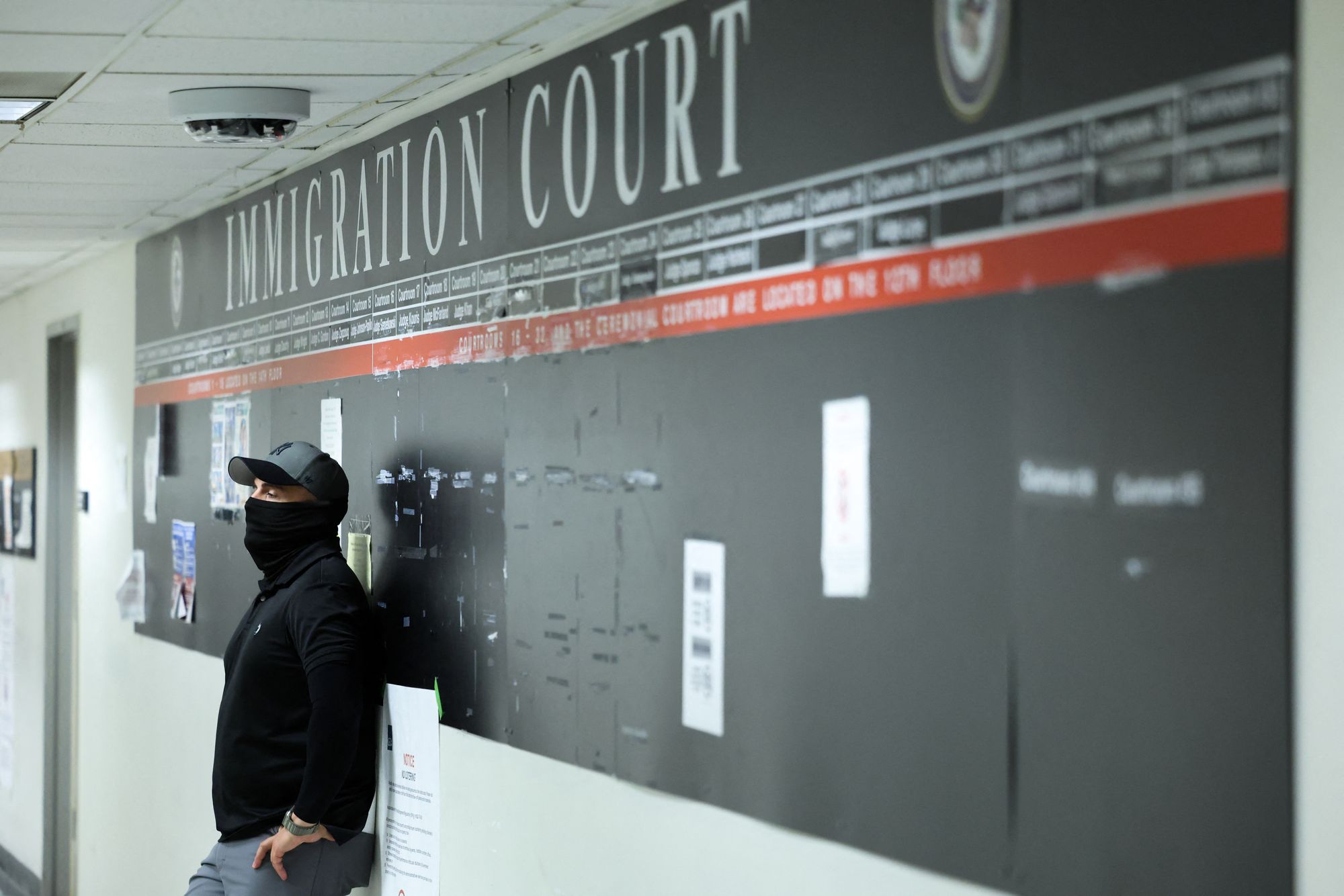While a federal government shutdown imperils critical services for millions of Americans, courthouses that handle the fates of immigrants across the country will remain open for business for Donald Trump’s mass deportation agenda.
Shutdown contingency plans for the Department of Justice deemed immigration court staff essential, suggesting that tens of thousands of deportation cases can proceed as normal. The American Immigration Lawyers Association told members that cases for clients who are not in Immigration and Customs Enforcement detention centers “are proceeding as usual” despite the government-wide shutdown.
“I have no reason to believe that it will change, because they want to deport as many people as they can,” according to Ohio immigration attorney Margaret Wong.
But Justice Department attorneys are also making dozens of requests to federal judges to pause high-stakes immigration-related cases, citing a “lapse of appropriations” during the congressional budget fight that has prohibited lawyers from working on most cases “except in very limited circumstances.”
As lawyers in one high-profile immigration battle wrote Thursday: “They apparently have the resources to detain and deport thousands of immigrants with no criminal history to dangerous countries but would prefer not to expend the resources needed to defend the legality of such actions in court.”

The Independent has requested comment from the Justice Department’s Executive Office of Immigration Review.
Courts must pause most “non-essential” functions during a shutdown; all court hearings for immigrants who were not in ICE detention were suspended and deemed “non-essential” during previous shutdowns.
During the last shutdown, during Trump’s first term, immigration courts saw significant delays in proceedings for non-detained migrants. That 2019 shutdown forced as many as 94,000 cases to be put on hold, according to the American Immigration Council. But there were roughly only 1 million pending cases at the time.
The backlog has now reached nearly 4 million cases. That backlog would be “greatly exacerbated during a shutdown absent excepted activities” if immigration court proceedings were paused during the shutdown, according to the Justice Department.
Two days out from the start of the latest shutdown, every immigration court in the country is marked as “open” and operational, while staff and attorneys scramble to determine whether cases are still moving forward.
Some courthouse hallways are empty, but immigrants and their attorneys are still showing up for their court-ordered hearings, unsure whether they’ll be heard.
“Like with most things these days, particularly when it comes to the federal government, there is nothing but uncertainty,” said Sarah Burrow, the director of immigration law at Lewis Kappes Law Firm in Indianapolis.
The Department of Homeland Security — which includes ICE and U.S. Customs and Immigration Services, among other agencies — has been spared some of the biggest impacts of a shutdown, with roughly 5 percent of its more than 270,000 employees facing furloughs.
Tens of thousands of federal workers will be furloughed through the shutdown, but a separate, massive funding package approved by Congress earlier this year keep ICE and other Homeland Security agencies in service to “hire, train, and deploy law enforcement across the country to make America safe again,” according to Homeland Security assistant secretary Tricia McLaughlin.
Meanwhile, other immigration services — including visa appointments and naturalization ceremonies — are expected to be rescheduled or delayed indefinitely while federal agencies are focused on arresting and removing people from the country.
USCIS director Joseph Edlow, who blamed congressional Democrats for the shutdown, said the agency “will ensure available resources focus on reviewing cases with national security concerns,” including vetting immigrants and referring “threats” to ICE.
“Unfortunately, this reprioritization may impact processing times” for other services, including immigration interviews and naturalization ceremonies,” he said Thursday. “USCIS regrets any negative impacts caused to aliens and Americans seeking benefits from the agency but must ensure that it complies with the law.”
Houston-based immigration attorney Steven Brown argued that USCIS does not need to shut down; he said a government shutdown “should not be used as bad-faith pretext to reduce adjudication speed, as there is no excuse for it.”
Aaron Reichlin-Melnick, senior fellow with the American Immigration Council, suggested that USCIS is “illegally” using the shutdown as cover to “deliberately slow benefit granting.”

Immigration courts — which unlike federal district courts are under the direction of the Justice Department — have emerged as a critical flashpoint for the president’s anti-immigration agenda.
Immigration court judges, serving under Attorney General Pam Bondi, have been ordered to quickly dismiss thousands of cases, making immigrants vulnerable for immediate arrest on the other side of the courtroom doors.
That policy has sparked scenes of masked federal agents patrolling hallways and descending on immigrants moments after they leave their court hearings. A federal judge lambasted the practice as a “game of detention roulette” that violates due process.
Immigration attorneys and advocates are warning that the government shutdown could exacerbate already-chaotic immigration court proceedings under the second Trump administration.
“This isn’t how a just and functional democracy for the people should work,” said Murad Awawdeh, president of the New York Immigration Coalition.
Prosecutors seek to have ex-Green Beret accused of failed Venezuelan plot back in custody
Portland braces for federal troops as protests escalate and conservative influencer is arrested
Hamas agrees to release all hostages as part of Trump’s Gaza peace plan: Latest
What is a government shutdown? Here’s how it will impact most Americans
Trump threatens Portland after police arrest a MAGA influencer
CBS News staffers are ‘literally freaking out’ about Bari Weiss taking over newsroom







